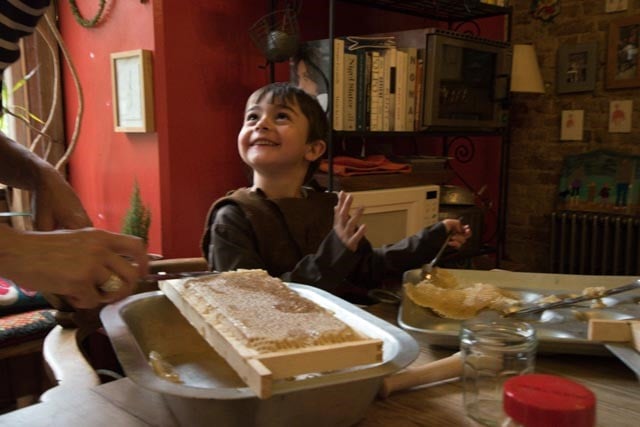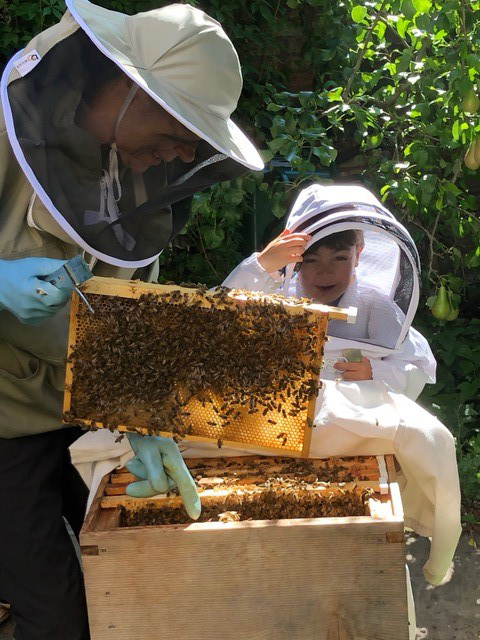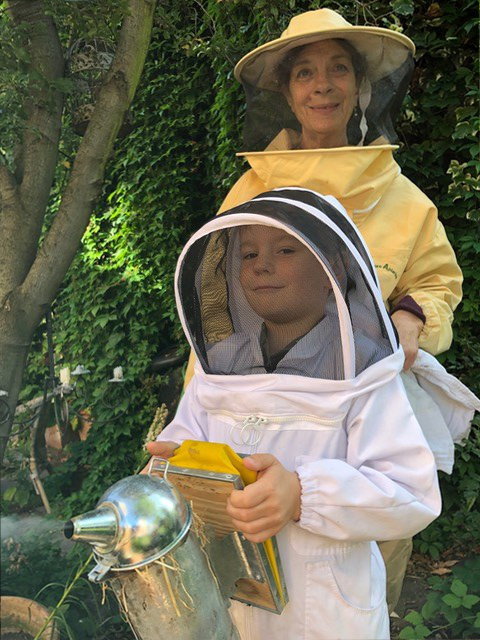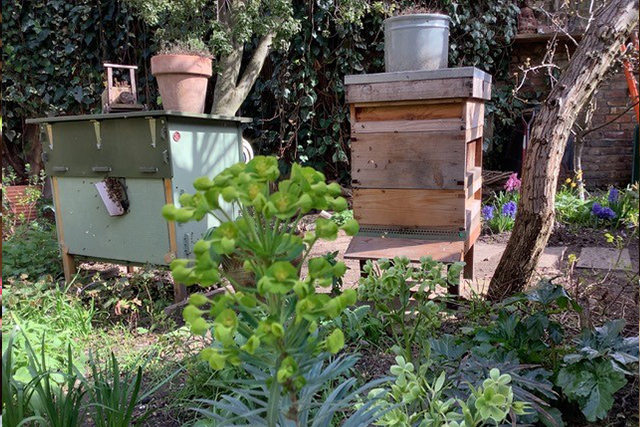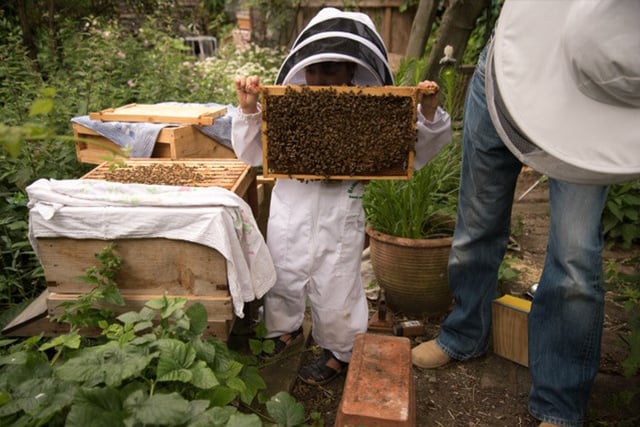The joy of keeping bees in a city garden
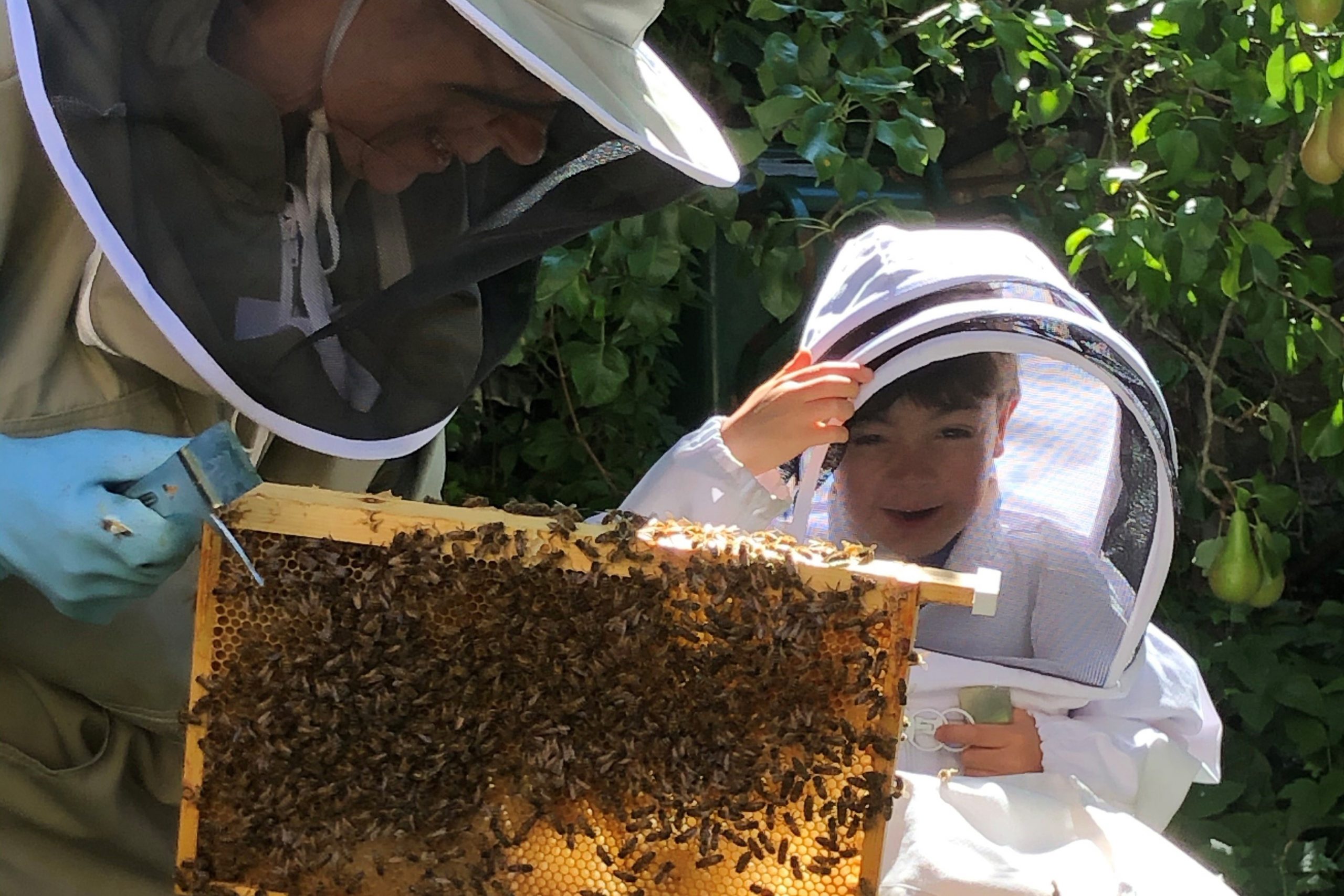
When we think of bees we don’t often picture them living and thriving in the city, especially not a major metropolis like London. But for garden owner Magda Segal, keeping bees in her garden, The Gable End Gardens in Camden, North London, is a joy.
We caught up with Magda to find out how she got into beekeeping and what challenges she and the bees face.
What inspired you to get into beekeeping?
I’d had a vague fantasy about keeping bees for many years. Then, about ten years ago, I went on a British Beekeeper Association (BBKA) beginner’s course. The course was brilliant but, when it came to actually getting a colony, I realised I didn’t have the confidence to do it on my own. I felt overwhelmed and decided that it wasn’t the right time for me. Then, eight years ago my grandson came to live with us. My life was suddenly centred round the home and I felt I needed something that I could immerse myself in while still being around for him. I was still interested in the idea of beekeeping and mentioned it to Chris a friend of mine who turned out to be equally enthusiastic. We enrolled on the BBKA beginners’ course together and were hooked. Five years ago, we bought our first nucleus – a small colony, usually on three, four or five frames – and housed it in my garden. We now have two colonies. One is in a National hive and the other is in a long top bar hive.
- The joy of honey
The main concerns about keeping bees in an urban environment for me were:
Where to put the hive
Bees need a clear flight path when leaving from and returning to their hive so careful consideration of exact location was needed to make sure that neither the people nor the bees got disturbed.
Swarming
It is a totally natural thing for bees to swarm and, whilst it is possible to lessen the chances of your bees swarming, they will swarm at some point. Being in a built-up area means that the swarm may well end up in your neighbour’s garden or in a tree in the street. Although bees are usually very passive when they swarm a lot of people are terrified of them and dealing with this can be difficult.
Water
Bees need water so if you do not have a source of water close to the hive your bees could well end up in next door’s paddling pool.
The main challenges for city bees are:
Too many colonies in a small space can lead to overcrowding, disease, and a shortage of food for the bees to forage.
Is there enough foodstuff for bees in an urban environment and what do you plant to help support them?
I am very concerned about the available forage for honeybees and other pollinating insects. Much of the countryside is now a vast swath of monocultures. This can be a desert for pollinators. Cities can be brilliant for pollinating insects as there are so many parks and gardens with a huge array of different plants throughout the year. However, beekeeping in the cities has become so popular there is less forage to go round. I believe it is vital as part of your beekeeping practice to make sure that you grow a range of plants that are good for all pollinators.
I try to do this by sowing seeds and planting shrubs that are good for pollinators not only in my garden but also in the tree pits in my street. I have also – with permission from my Local Council – built a large planter in the street.
What is city made honey like?
The honey we get from both the hives is divine. They taste very different from each other. Shop bought honey is like eating a completely different food.
Who looks after the bees?
As the bees are in my garden, I am the person that watches for any unusual behaviour and takes general responsibility on a daily basis. Chris always comes over when we do our hive inspections. I also have a more experienced local beekeeping friend and we help each other with our hives. My grandson is a keen learner too. The North London Beekeepers Association is always available to help if we are really stuck. Being part of a beekeeping club is essential.
- Inspecting the hives with Soren
- Magda with Rex, Chris’s grandson
How do locals react to the bees?
Very favourably. A number of the children in my grandson’s school (which is in our street) have hay fever and think that the honey from our garden helps with that. Our neighbours were at first very wary of having bees so close to them but now think they are brilliant.
Do you make honey or beeswax products?
Chris has made wax food cloths as an experiment, but we usually just take the honey. However, we only take what we think is surplus to the needs of the bees. This means we keep honey frames back for winter feeds or for the possibility of a dearth forage.
What are the main threats to your bees?
I do not see any threats to our colonies other than the ones all bees face such as the varroa mite, foul brood etc but these are threats faced by all honeybees.
Five reasons why Magda finds keeping bees a joy
- The smell of honey coming from the hives on a warm summer evening
- The relaxing sound of humming bees
- The meditative effect of watching the bees coming in and out of the hive
- Very rewarding when you see a healthy colony
- Connecting with the natural world
- Hives in the garden
- Soren looking for the queen
The Gable End Gardens are scheduled to open for the National Garden Scheme on Sunday 27th June. Check for details here: https://ngs.org.uk/view-garden/37041
Explore all our bee-friendly gardens




